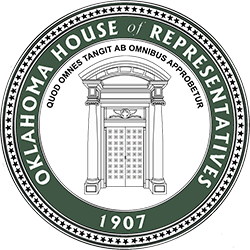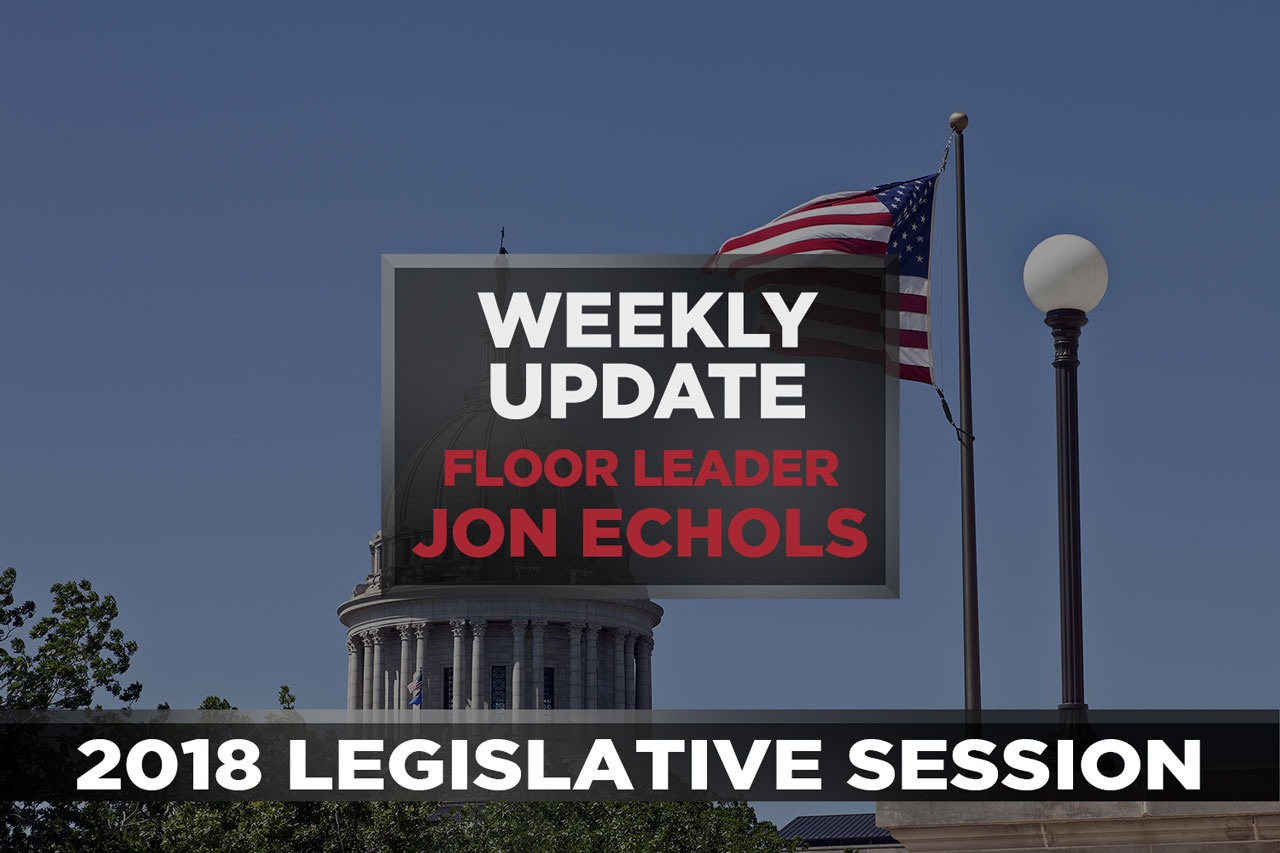
House Approves Bill to Reduce Testing in Schools
Legislation approved today by the Oklahoma House of Representatives will reduce testing in K-12 schools.
House Bill 3218 reduces the number of required tests to 18, including:
- 12 English and math tests between grades 3-8;
- 2 science tests, one in grades 3-5 and one in grades 6-9;
- and 4 high school tests in English, math, science and U.S. history.
All of the remaining tests except for U.S. History are required by the federal government under the Every Student Succeeds Act. Tests that were removed include an art test, geography tests and a social studies test.
The legislation requires the same tests to be used in the upcoming school year, but authorizes the state education department to look for new assessments to fulfill the federal and state requirements for the next year. The measure also removes passage of the test as a requirement for graduation and authorizes the state education department to create new graduation requirements.
House Passes Bill to Cap Tax Credit for At Risk Oil and Gas Wells
The House this week approved a measure to cap a tax rebate for economically at-risk oil and gas wells.
Senate Bill 1577, authored by House Speaker Jeffrey W. Hickman (R-Fairview), would place an annual cap of $12.5 million on a tax rebate at for economically at-risk wells for any oil and gas production occurring after 2014. Placing a cap on the tax credit is expected to save the state approximately $120 million next year.
House amendments to the measure is now being considered in the Senate.
House Ends Double Deduction Option on Tax Filings
The House of Representatives this week passed a measure that would end the practice of some taxpayers deducting state income taxes twice on the annual filing and save the state $97 million.
Senate Bill 1606, by state Rep. Earl Sears (R-Bartlesville), would provide that taxable income, for the purpose of determining state income taxes due, will be increased by any amount of state or local sales or income tax deducted on a taxpayer’s federal income tax return effective tax year 2016. This change only applies to taxpayers that itemize their deduction on the federal return.
Senate Bill 1606 has been sent to the governor’s desk for her consideration.
House Reforms Earned Income Tax Credit
The House of Representatives this week passed a measure that would make the earned income tax credit nonrefundable. The change will free up more than $28 million for other state priorities like education, corrections and healthcare services.
Senate Bill 1604 would keep the credit in place but make it nonrefundable effective tax year 2016. Nonrefundable credit means the credit can’t be used to increase your tax refund greater than the amount of taxes you paid.
The state earned income tax credit is equal to five percent of the federal earned income tax credit.
Senate Bill 1604 will now proceed to the governor’s desk for her consideration.
House Creates Fund to Stabilize Revenues During Downtimes
The House of Representatives this week passed a bill creating a fund that would help stabilize the budget when revenues decline.
House Bill 2763, authored by state Rep. John Michael Montgomery (R-Lawton), would create the Revenue Stabilization Fund to hold excess oil and gas gross production tax collections and excess corporate income tax collections, which can be tapped to shore up lagging revenue collections.
The bill would set up a mechanism for monies to be deposited to the fund when the amount of tax revenue exceeds the moving five-year average. In the event that a revenue failure is declared with respect to the General Revenue Fund, the measure authorizes the director of the Oklahoma Management and Enterprise Services (OMES) to withdraw up to 25 percent of the balance, provided the total amount withdrawn may not exceed the amount of the declared revenue failure.
The bill would also authorize the State Treasurer create a “Revenue Protection Strategy” for the following fiscal year and to contract with a third-party on how to best protect the revenues in the fund.
Finally, the bill would require the Oklahoma Tax Commission to report to the State Treasurer the projected level of revenue that will be reported to the Board of Equalization at its December meeting.
Governor signs bill to collect tax from online vendors
Legislation to level the playing field between Oklahoma brick-and-mortar retailers and out-of-state vendors was signed by the governor this week.
House Bill 2531, by state Rep. Chad Caldwell, the Retail Protection Act, will require online retailers that do not have a physical presence in Oklahoma to either begin voluntarily collecting sales tax at the point of consumer purchase or sending each of their consumers a notice at the end of each year stating the total amount of purchases with a reminder that sales and use tax remittance is required.
Caldwell stressed this is not a tax increase as sales and use tax collection and remittance is already required by state statute. Under the current system, the taxpayer was required to claim the use tax annually on their tax return. Estimates show only 4 percent of Oklahoma taxpayers complied.
Governor Signs Legislation to Add Nursing Homes in Rural Areas
Legislation that would allow rural hospitals that manage nursing homes to own them was recently signed into law by Gov. Mary Fallin.
House Bill 2549, by Rep. Doug Cox, R-Grove, would modify the definition of the term “owner” in the Nursing Home Care Act to include a facility’s “managing entity.” The measure is intended to allow for a greater number of nursing homes in rural areas.
Cox said many times family members must consider placing a loved one in a nursing home far from home because of the limited number of beds in rural areas. His legislation would make it easier for rural hospitals that manage nursing homes to become owners of the facilities.
Governor Signs Measure Restricting Use of Drones
Gov. Fallin this week signed House Bill 2599, by state Rep. Justin Wood (R-Shawnee) to restrict flight of unmanned aircraft over locations and businesses that are completely fenced in or have signs to prevent intruders. Sen. Ron Sharp is the principal Senate author of the bill that he says will help better protect the privacy and security of Oklahoma businesses and facilities.
HB 2599 restricts flights of drones over “critical infrastructure” less than 400 feet above ground level or past their fence lines. The bill also requires signage on such property forbidding flight of drones without site authorization. Violators can be found civilly-liable for damages to the property, environment or human health. Government, law enforcement, the owner of the critical infrastructure facility and operators authorized by the FAA to conduct operations over that airspace are exempt under the new law.

